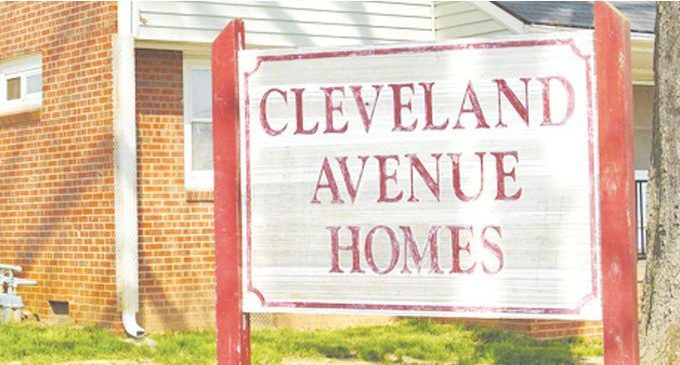$30M Choice Neighborhoods Grant could be good news for supporters of Ashley Elementary
Last week the Housing Authority of Winston-Salem announced that they have been awarded the $30 million Choice Neighborhoods Grant from the U.S. Department of Housing and Urban Development (HUD).

Last week the U.S. Department of Housing and Urban Development (HUD) announced that the Housing Authority of Winston-Salem (HAWS) has been awarded $30 million for a complete makeover of the Cleveland Avenue Community.
The Choice Neighborhoods Grant is a federal grant designed to replace outdated public housing units with mixed housing and single-family homes. HAWS announced they were applying for the grant (for the fourth time since 2016) last fall. To apply for the grant, HAWS was required to partner with the city, who is responsible for handling projects such as roads, streetscapes, and parks.
In a press release issued by the City of Winston-Salem, Kevin Cheshire, executive director of the Housing Authority said, ““It’s been a long time coming. I’m excited that our persistence has paid off. I’m excited for our residents and I’m eager to see the transformation that comes out of this.”
Mayor Allen Joines said, “This is great news for the entire community. Local agencies came together to submit a plan that really was designed by the citizens themselves through our public-input process. I’m happy for them and for the transformative effect that this is going to have not only for the Cleveland Avenue Homes, but for the surrounding area.”
The bulk of the grant will be used to replace more than 200 apartment units with 406 new units of housing. The area that will be directly impacted by the renovations stretches along Cleveland Avenue near Martin Luther King Jr. Drive to 21st Street.
Powered by a “comprehensive approach” to neighborhood transformation, the grant not only revitalizes housing but also puts emphasis on improving service, education, and other programs within the community, which could mean good news for supporters of the construction of a new Ashley Elementary.
Last fall Winston-Salem/Forsyth County Schools made a request to purchase 18 lots located near 21st Street and New Hope Lane to replace the aging school currently located near North Jackson Avenue. To finalize the deal, the city council had to rescind a previous deal for the sale of 24 lots to HAWS in the same area.
Talks about replacing Ashley have been ongoing for more than a decade. According to representatives from WS/FCS, the project was left off the 2016 Education Bond to make room for other projects. Although Ashley opened as an elementary school in the mid-1990s, the building was originally built in the 1950s and operated as a middle school until it closed in the 1980s.
In 2018 faculty, staff and students at the school complained that lingering mold in the school was causing upper respiratory issues. In response to the mold issue, the school board voted to spend $1.38 million to replace HVAC units and install dehumidification systems throughout the school, but many people only saw the improvements as a Band-Aid on a broken leg. A few months later, Action4Equity, a group formed in response to the handling of the mold issue, and several local organizations, including the Winston-Salem NAACP, Ministers’ Conference of Winston-Salem, and several others, filed a discrimination complaint against the local school system with the U.S. Department of Education.
In the lawsuit, Action4Equity and others allege WS/FCS violated Title VI of the Civil Rights Act of 1964 which prohibits discrimination based on race, color, or national origin. The complaint says, “WS/FCS’s failure to quickly and fully address the poor facility conditions at Ashley has weighed significantly more on one race than others because Ashley is a racially identifiable school.”
Less than six months after the complaint was filed, the Office of Civil Rights at the U.S. Department of Education agreed to look at the claim. Kellie Easton, coordinator for Action4Equity, said although she’s happy to see development come to the community, stakeholders should make sure that the people who live and work in the community every day have input.
“The community definitely needs development, we’re experiencing development throughout the downtown area and there is not enough projects going on in historically black communities,” Easton continued “So I’m happy about that; however, we do have to make sure that there is a community driven process around the development that centers the voices of the community.”
With the possibility of Ashley becoming a vocal point of the redevelopment of the Cleveland Avenue Community, Easton said it makes sense to build the community around the school. She said if done right, this could be an opportunity for people in the community to build the community they deserve.
“It makes sense to build the school in the community and for the community to develop around it,” Easton said. “This is a time to be really intentional about building a community everyone can be proud of and feel safe and children can grow.”
If a new Ashley Elementary is built, the complaint filed with the U.S. Department of Education would ultimately come to an end. The complaint calls for “a measurable resolution of the complaint,” which includes the construction of a new school.
It is important to note that although land has been purchased for the construction of the new school, WS/FCS will still have to find funding for construction. To get funding, the district will have to make some changes to the projects approved in the 2016 bond or wait until another bond is approved by voters.
A new school would cost about $30 million.
When discussing the future of Ashley with members of city council, Darrell Walker, WS/FCS assistant superintendent, said after having discussions about the Choice Neighborhoods Grant, school officials decided to explore their options. He said they saw it as an opportunity to provide wraparound services for students and the community as a whole.
“Our plan is not to just build a school. We consider schools more now around community centers and getting people in our community to get involved in our schools after hours,” Walker said. “We would like to partner up and build some wraparound services at this school related to health care, dental, daycares, those kinds of things for families.”














